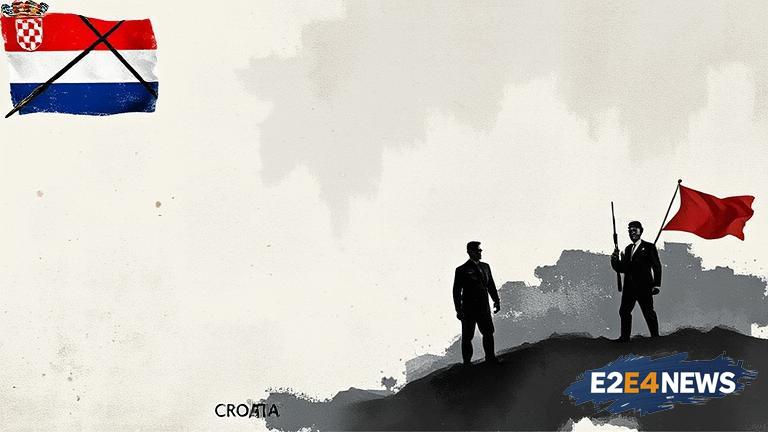The Croatian War of Independence, which lasted from 1991 to 1995, was a pivotal moment in the country’s history. The conflict began as a response to the Yugoslav People’s Army’s attempts to suppress Croatia’s declaration of independence from Yugoslavia. The war saw numerous atrocities committed by both sides, including the siege of Dubrovnik and the massacre at Vukovar. The international community intervened, with the United Nations imposing economic sanctions on Yugoslavia and later deploying peacekeeping forces to the region. The war finally came to an end with the signing of the Erdut Agreement in 1995, which established a transitional period for the region of Eastern Slavonia. In the years since, Croatia has made significant progress in rebuilding and reconciling with its past. The country has worked to prosecute those responsible for war crimes, including former President Franjo Tudjman’s government, which was accused of ethnic cleansing and other human rights abuses. Croatia has also made efforts to provide compensation and support to victims of the war, including those who were displaced or lost loved ones. However, many challenges remain, including ongoing tensions with neighboring Serbia and the need for further reconciliation and healing. The war has also had a lasting impact on Croatia’s politics, with many of the country’s current leaders having played a role in the conflict. The legacy of the war continues to be felt in Croatia’s relationships with other countries, particularly in the region. The European Union has played a key role in promoting reconciliation and cooperation in the region, and Croatia’s accession to the EU in 2013 marked an important milestone in the country’s post-war development. Despite the progress made, many Croatians still feel that the country has not fully come to terms with its past, and that more needs to be done to address the ongoing impacts of the war. The issue of missing persons, for example, remains a major concern, with many families still waiting for news of loved ones who disappeared during the conflict. The Croatian government has established a number of initiatives aimed at promoting reconciliation and healing, including the creation of a national memorial day to commemorate the victims of the war. However, some critics argue that more needs to be done to address the root causes of the conflict and to promote a culture of tolerance and understanding. The war has also had a significant impact on Croatia’s economy, with the country still feeling the effects of the conflict in terms of infrastructure and human capital. The tourism industry, which is a major driver of the Croatian economy, has been particularly affected, with many visitors still wary of traveling to a country with such a recent history of conflict. Despite these challenges, Croatia remains a popular destination for tourists, with its stunning natural beauty and rich cultural heritage attracting visitors from around the world. In recent years, the country has also seen a growth in entrepreneurship and innovation, with a number of start-ups and small businesses emerging in the wake of the war. The Croatian government has implemented a number of policies aimed at promoting economic development, including investments in infrastructure and education. However, the country still faces significant challenges in terms of corruption and bureaucracy, which can make it difficult for businesses to operate and for citizens to access basic services. As Croatia looks to the future, it is clear that the legacy of the war will continue to play a major role in shaping the country’s politics, economy, and society. The international community will continue to play an important role in promoting reconciliation and cooperation in the region, and Croatia’s relationships with other countries will remain a key factor in the country’s ongoing development. Ultimately, the story of the Croatian War of Independence serves as a reminder of the devastating consequences of conflict and the importance of promoting peace, tolerance, and understanding. The conflict has left a lasting impact on Croatia and the wider region, and it will take time, effort, and commitment from all parties involved to fully reconcile and heal. The Croatian people have shown remarkable resilience and determination in the face of adversity, and it is this spirit that will ultimately drive the country’s ongoing development and growth. As the country continues to rebuild and reconcile, it is clear that the legacy of the war will remain an important part of Croatia’s history and identity. The war has taught the country valuable lessons about the importance of peace, tolerance, and understanding, and it is these lessons that will guide Croatia as it looks to the future.





